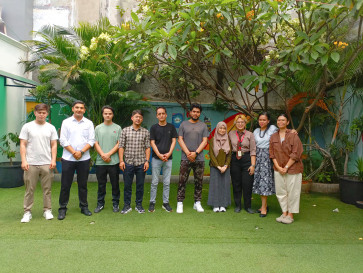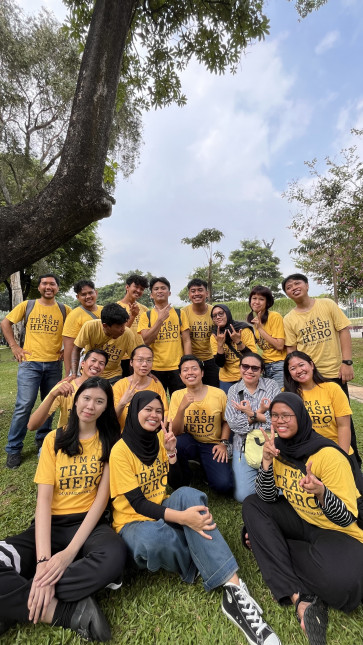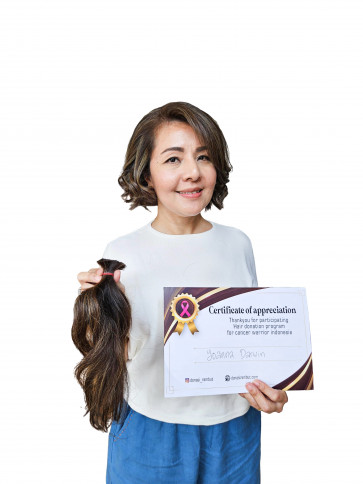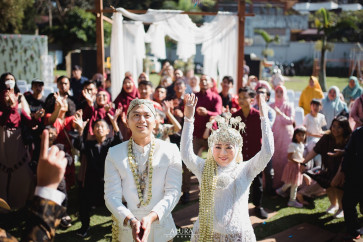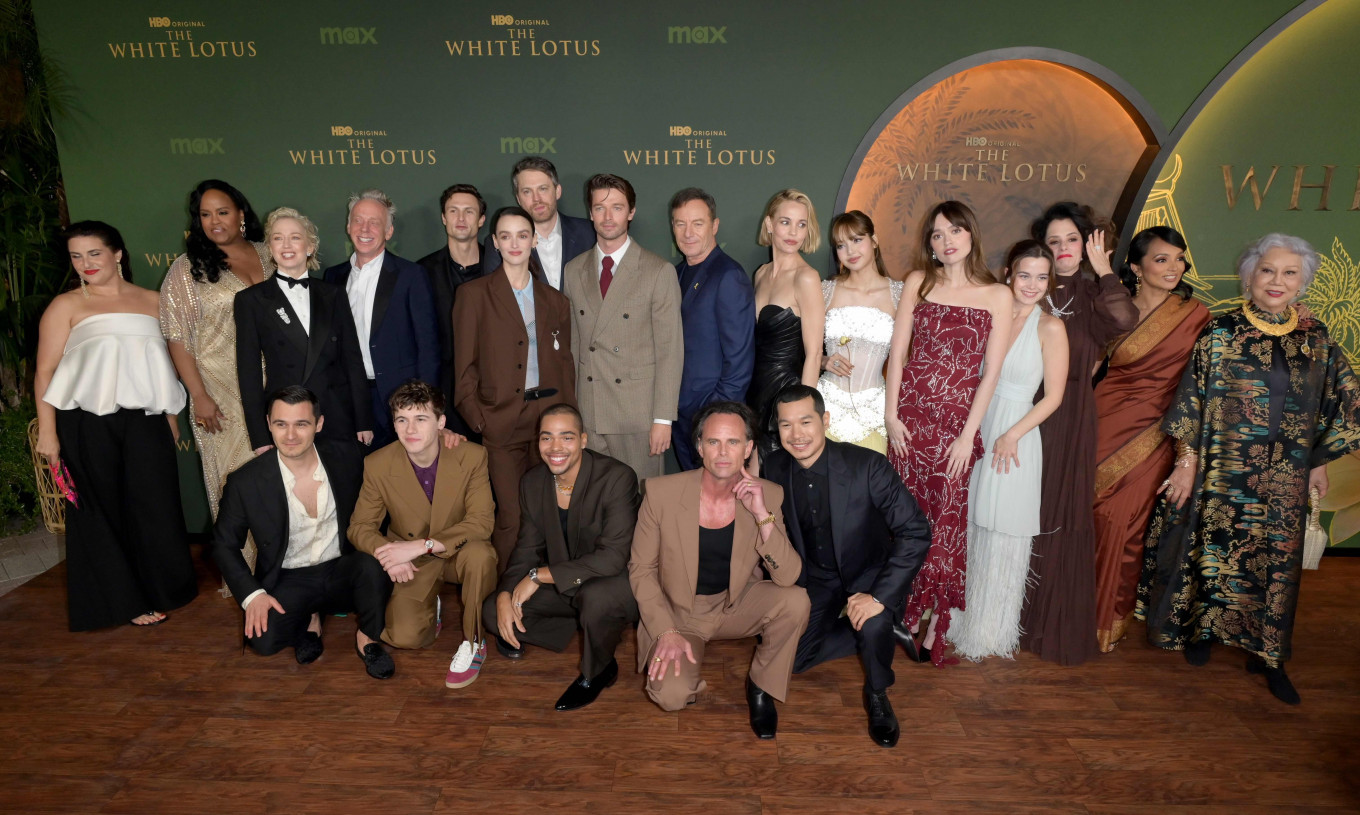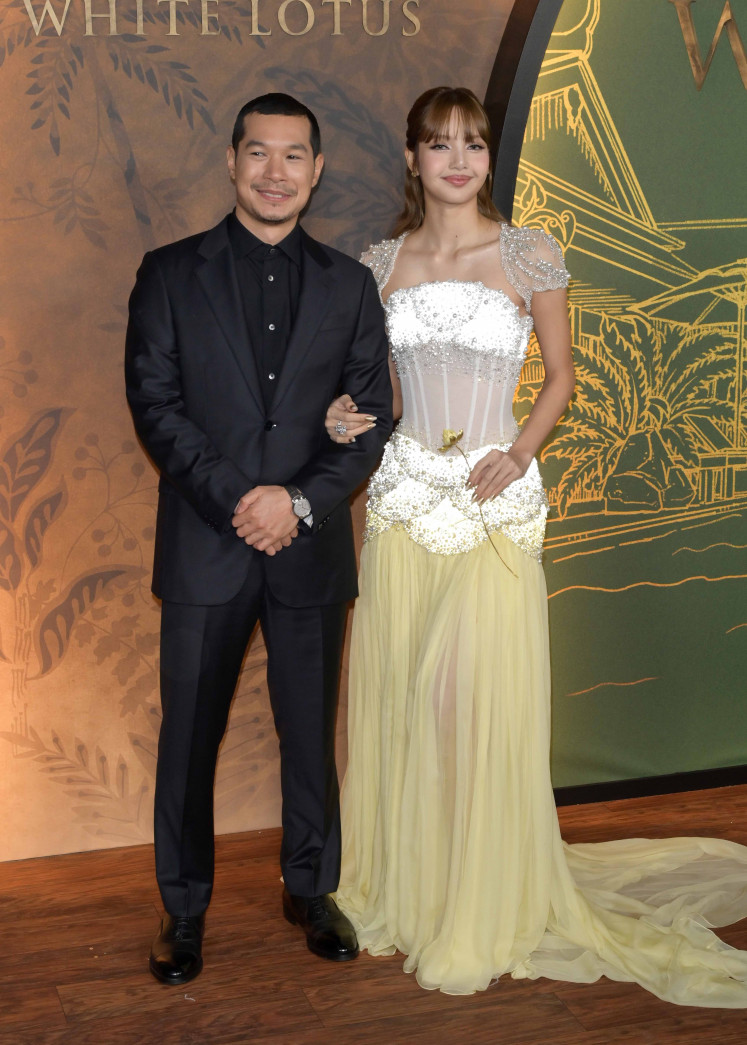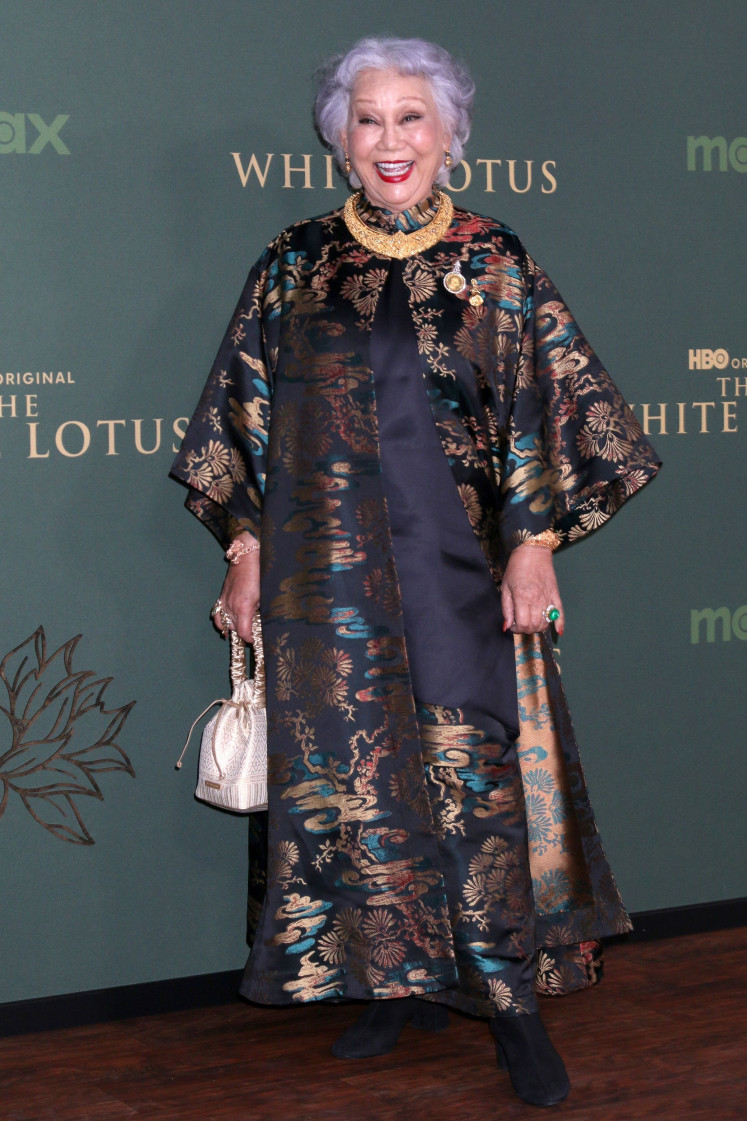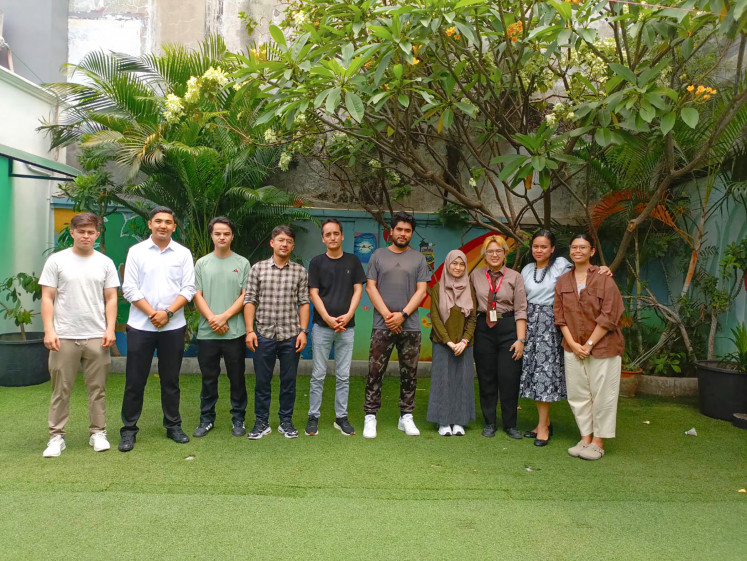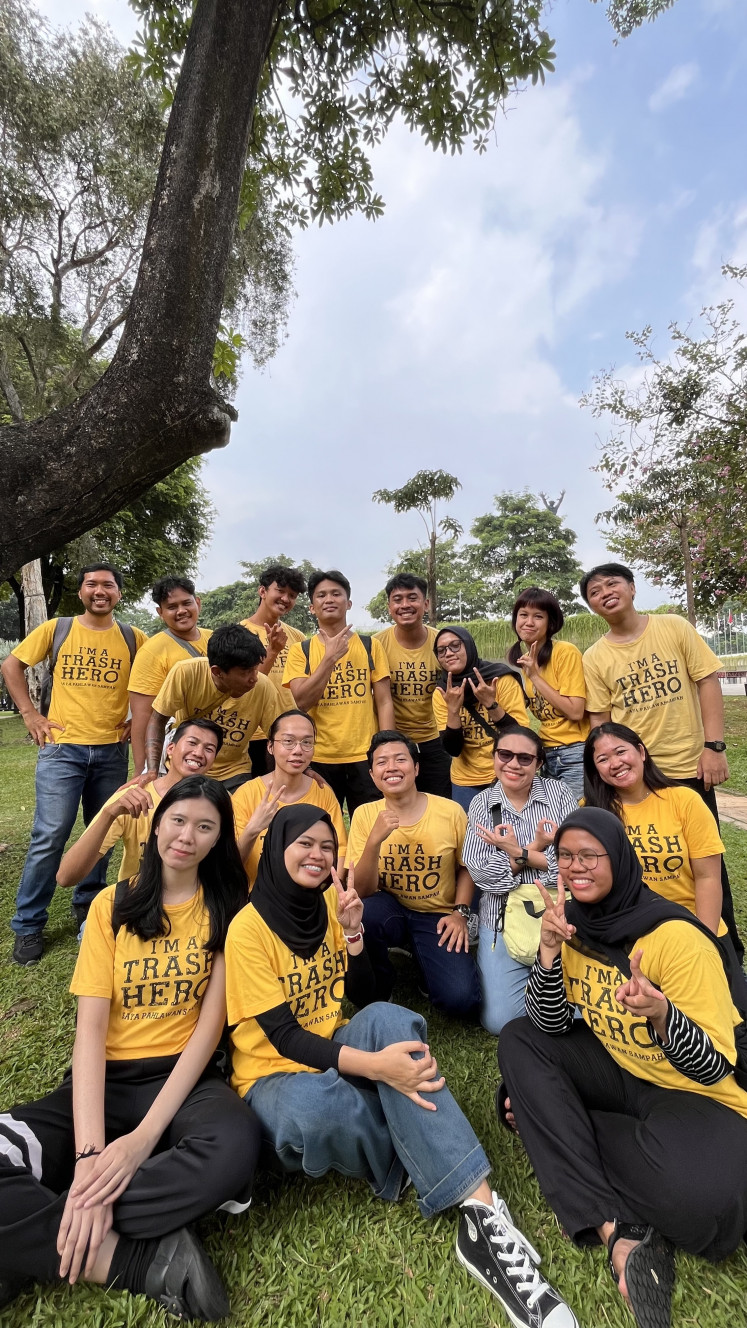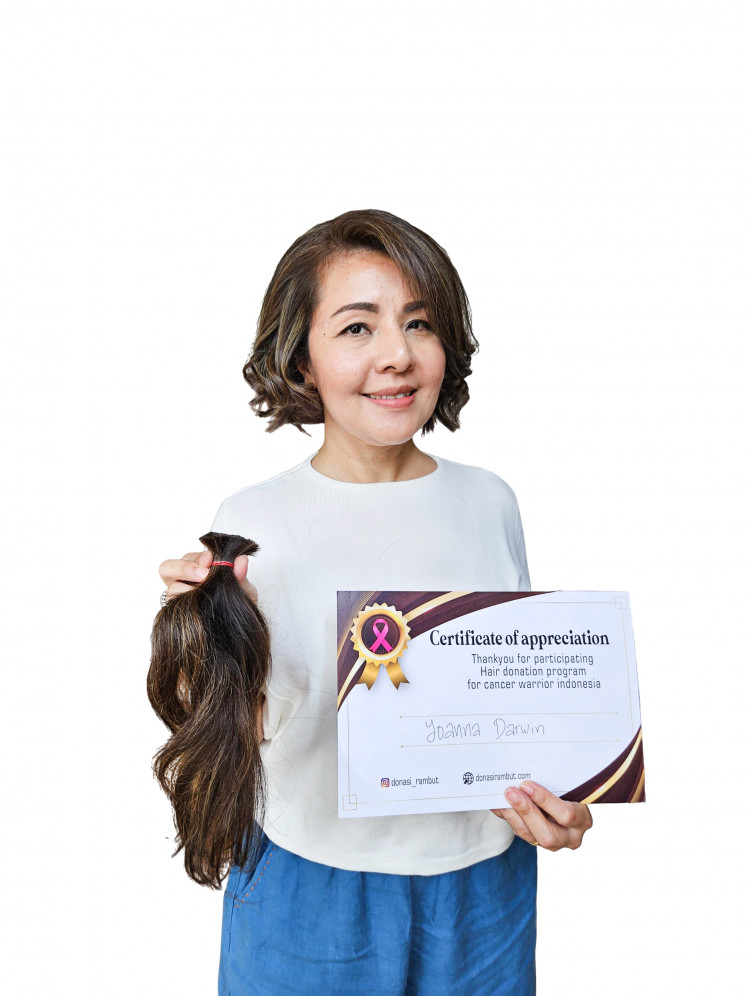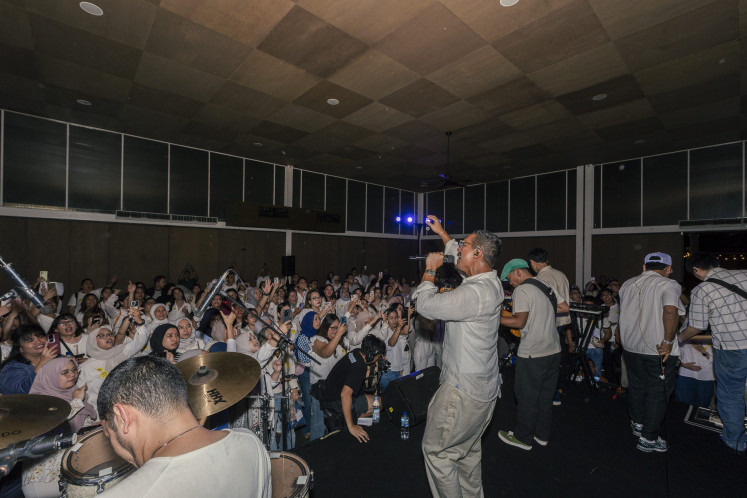The cast and crew of The White Lotus Season 3, seen here at the Los Angeles premiere in February 2025, included Thai stars Lalisa Manobal, Patravadi Mejudhon and Tayme Thapthimthong, to add authenticity to the show’s Southeast Asian setting.
Since it debuted with a splash in 2021, HBO’s The White Lotus has delivered guilty pleasures and sharp critiques on wealth, power and privilege, all while vacationing in five-star resorts.
At its core, the dramedy series created by Mike White blends whodunit with social satire, wrapped in sun-drenched luxury and simmering tension. If you’re unfamiliar with the show, each season opens with a dead body and the main quest: Who died, and how?
After the critical success of season 1 set in Hawaii and season 2 in Italy, the third installment shifted its gaze to Asia, specifically Thailand. And with Lalisa Manobal (Lisa from BLACKPINK) joining the cast, many Asian viewers paid closer attention.
Although the season ended weeks ago, the cultural conversation it sparked continues to ripple. What started as a biting commentary on Western elites abroad now raises a bigger question: When Asia is the backdrop, what kind of representation do we get?
In this case, Thailand isn’t just another destination: It’s a gateway to understanding how Hollywood still falls short when it comes to Asian representation.
Stereotypical Asian couple

Thank you!
For signing up to our newsletter.
Please check your email for your newsletter subscription.
It made sense for Lalisa to join the cast as Mook, one of the resort’s wellness mentors. Her casting, heavily promoted along with the American leads, was a smart strategy to attract K-pop fans and a broader Asian audience.
Tayme Thapthimthong’s Gaitok and Lalisa Manobal’s Mook play a sweet but shallow couple, lacking tension even with a Chekhov’s gun. (Shutterstock)
From the first episode, she’s portrayed as a damsel in distress: Her motorcycle breaks down on a deserted road and she is rescued by Gaitok, the resort’s security guard, played by English-Thai actor Tayme Thapthimthong.
His admiration is immediate. Polite and diligent, he’s initially too gentle for Mook, who seems uninterested until he shows some ambition. She is more interested in the bodyguards of the resort owner, drawn to power over character.
Mook is portrayed as a beautiful woman fixated on status, with little insight into her own motivations.
Later in the season, Gaitok fumbles when masked thieves steal jewelry from the hotel. Afterward, he’s given Chekhov’s gun: His inner conflict is whether to use it or stay true to the Buddhist principle of ahimsa (nonviolence), do no harm.
Eventually he sacrifices his beliefs, becomes a bodyguard and wins Mook’s affection. Yet Mook remains a shallow character, serving as a mere catalyst for Gaitok’s arc; a plot device.
Together, they fall into an outdated Hollywood trope of Asian couples: quiet, conventional, underdeveloped and asexual. They even lack chemistry during their date: They stroll, talk and exchange smiles; very tame compared to the show’s other characters.
Mook and Gaitok are beautiful but not sexy, reinforcing a familiar Hollywood perception of Asians.
It’s 2025 and even with a global pop icon on board, Mook is underwhelmingly written, when she could’ve been written with more depth and compassion. Working-class Asian women also dream of careers and agency, not just status.
Gaitok, supposedly the more central character, doesn’t fare much better. He lacks the complexity given to characters like Timothy Ratcliff (Jason Isaacs), a bankrupt businessman contemplating murder and suicide, and Rick Hatchett (Walton Goggins), who is bent on revenge.
We might argue that Mook and Gaitok are supporting characters, but so are Frank (Sam Rockwell) and Belinda (Natasha Rothwell), yet the latter two are given layers.
Imagine if Mook had been a trans woman or if the show had included any well-developed trans characters, reflecting Thailand’s vibrant queer community. Even a simple sex scene between Mook and Gaitok could have added dimension. Instead, we get surface-level sweetness without desire.
Shallow juxtaposition
Two more Thai characters round out the season: resort owner Sritala Hollinger (Patravadi “Lek” Mejudhon) and wellness expert Pornchai (Dom Hetrakul), who mentors Belinda during her exchange program.
As the eccentric resort owner, Sritala, Patravadi “Lek” Mejudhon brings confidence and poise, though her role rarely moves beyond a polished introduction to her white husband’s larger arc.
(Shutterstock)
Sritala is powerful, successful and married to a wealthy white man. Her portrayal is positive, but lacks depth. Her backstory, struggles and the creation of her wellness empire are glossed over.
She’s also eccentric. In fact, she could’ve been as memorable as Miranda Priestly in The Devil Wears Prada but instead, she functions mostly to introduce her husband, who ends up with a bigger narrative arc.
Pornchai is more thoughtfully written, though he’s only a recurring character. Like Gaitok, he is gentle and kind, but also driven. He dreams of opening his own spa and invites Belinda to build it in Thailand instead of the United States.
There’s a subtle, romantic tension between Pornchai and Belinda. They even share a bed before her son Zion catches them. But unlike the powerful monologue Frank gets, Pornchai never has his big moment. He doesn’t get closure.
He’s not portrayed as conventionally sexy, either. He’s all smiles, just like Gaitok, Mook and Sritala.
Yes, Thailand is known as “The Land of Smiles”, but there’s more behind that culture. The White Lotus could have portrayed more nuance, if it had bothered to look deeper.
Asia via Hollywood lens
I’m not dismissing all the progress Hollywood has made in recent years in terms of Asian representation.
Crazy Rich Asians broke new ground, while shows like Beef (Netflix), Pachinko (Apple TV+) and award-winning films like Parasite and Everything Everywhere All at Once pushed the envelope. Michelle Yeoh’s Oscar win in 2023 felt like a seismic moment.
But the third season of The White Lotus feels like a step back.
The first Asian woman to win an Oscar was Miyoshi Umeki in 1957 for Sayonara, in which she played a quiet, submissive character. Decades later, Yeoh played a multiverse-hopping immigrant with depth and agency.
Yet here we are again.
The Asian characters in The White Lotus season 3 remain shallow, flat and functional; sometimes even tone-deaf. It feels like watching how American tourists see Asians when they’re on holiday at these “exotic” destinations: one-dimensional.
A country rich in culture, identity and cinematic potential like Thailand becomes a mere aesthetic, not a world. The show fails to explore its Asian characters with the same nuance and complexity it gave its American cast.
With Asian audiences watching from around the world, representation matters. And we have to ask: For all the progress we’ve made, are we starting to regress?
Reza Mardian has been writing film reviews and Oscar predictions since 2017. He received the best film critic award at the Festival Film Indonesia 2024.





